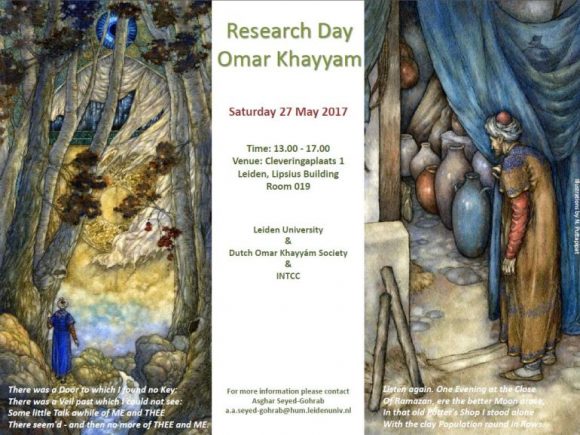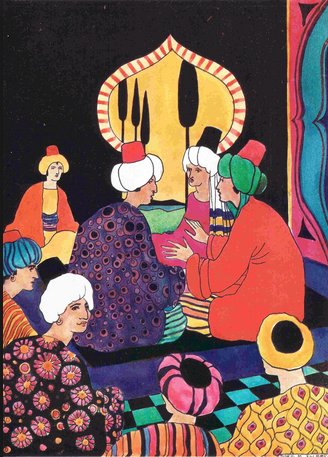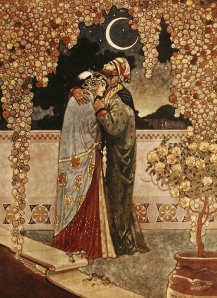The death of Douglas Taylor, 27th May 2019, means a great loss, not only for his wife and children and all other loved ones, but also for the international Omar Khayyám community.
Douglas was a keen collector of the rubáiyát, he took the verses of the old Persian poet to heart and found comfort and consolation in them. More than that, he spent much of his time and energy in studying, analysing and comparing the various translations and editions of the verses ascribed to Khayyám. Over the years he built a respectable library of all sorts of editions and related material.
All these years he seemed to work in silence, maybe voluntarily, but when he came into contact with other scholars, collectors and researchers, he enjoyed the exchange of information, the discussion and the suggestions for further research. Answering questions about whatever what, if related to Khayyám, seemed his second nature.
I came to know Douglas when I was preparing my bibliography of the Rubáiyat of Omar Khayyám, somewhere in 2008. It was Michelle Kaiserlian who alerted me a certain American gentleman, who also collected rubáiyát editions, and through her Douglas and I started an e-mail contact that lasted until a few weeks before his tragic death.
He alerted me to new or unknown editions, he answered my questions almost as if he was expecting them already and soon after our first contacts it became obvious to me that here was a man who was very deep into Omar, not as a maniac but as serious scholar. And though he was rather hesitative about publishing his work or sending it out in print, he was always more than willing to share the results of his work. Proof of that is his work on uncovering, studying and documenting all sorts of material relating to Khayyám.
In later years it turned out that he had already started comparing various editions and translations of the rubáiyát, which would help me enormously in preparing my Concordances of the Rubáiyát website. Without his help and unselfish contributions, it would be in no way what it is now.
A few weeks before his passing away, he sent me a message that he had been in hospital, but that he now was back in the saddle again, looking forward to return to his Omarian studies. He had recently been studying the sources of Eric Hermelin’s Swedish translations, and was also preparing to investigate the sources of the Finnish translation by Toyvo Lyy.
He had also studied French translations, and even went as far as trying to read or understand articles and chapters in the Dutch language, probably with the assistance of Google Translate, but it showed how eager he was to learn and understand what Khayyam was all about and what Omar meant to other people. It also showed that he looked at Khayyám’s rubáiyát from a wider view than just the English speaking world.
He more than once expressed his regrets that he wasn’t able to join meetings with fellow omarians abroad, and on one occasion, last year when there was a conference in the Netherlands, he wrote that he wished he could be there, “even if I didn’t understand one word”.
Now I am truly sad that he is no longer with us, but I am also happy that my wife and I were able to meet with Douglas and his wife Avlona, in 2014.
Thanks Douglas, for all your good works, rest in peace.


